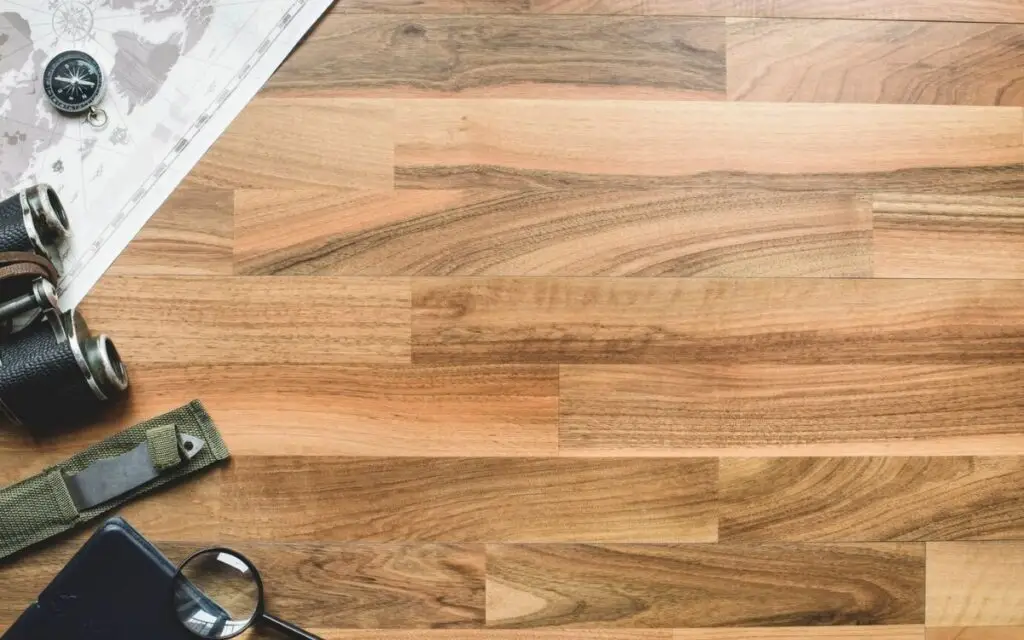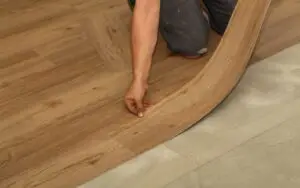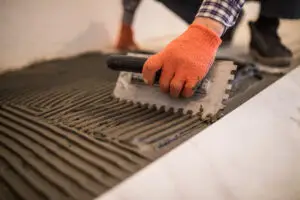Understanding Your Needs: Selecting the Right Flooring
Factors to Consider
Lifestyle and Traffic
Your lifestyle and the amount of foot traffic in your home are crucial factors when choosing flooring. For busy households with kids and pets, durable materials are essential. Areas with less traffic, such as guest rooms, can be fitted with less durable, yet still beautiful options. Understanding your daily needs will help in choosing the right flooring.
Budget and Aesthetics
Budget and aesthetics are also important considerations. There are flooring options available for various budgets, and each has its own set of aesthetic qualities. Balance cost and style to find a flooring that fits both your financial and style preferences. Professionals can also help you find the perfect style while ensuring you’re staying on budget.
Maintenance and Durability
Think about the maintenance requirements and durability of each flooring type. Some flooring materials require more upkeep than others, and some are more resistant to scratches and stains. Choosing a low-maintenance and durable option will save you time and effort in the long run.
Overview of Common Flooring Materials
Hardwood
Hardwood flooring is a classic choice, valued for its beauty and durability. It can last for many years if properly maintained and is a popular choice for living rooms, dining rooms, and bedrooms. Hardwood flooring comes in various wood species, colors, and finishes.
Laminate
Laminate flooring is a budget-friendly option that mimics the look of hardwood or tile. It is durable, easy to clean, and relatively simple to install, making it a popular choice for homeowners looking to save money. However, it does have some limitations that need to be addressed before deciding to install it.
Vinyl
Vinyl flooring is known for its versatility and affordability. It comes in various forms, such as sheet vinyl, vinyl planks, and vinyl tiles, offering a wide range of designs and installation options. Vinyl is a great water resistant option, making it perfect for bathrooms, kitchens, and entryways.
Tile
Tile flooring is durable, water-resistant, and easy to clean. It’s a great option for kitchens, bathrooms, and entryways, and is available in many styles, sizes, colors, and materials. Tile is one of the most versatile options available, and is one of the most durable.
Carpet
Carpet provides softness, warmth, and comfort. It’s an excellent choice for bedrooms, living rooms, and playrooms. Carpet comes in many styles, colors, and textures, but it also requires regular maintenance, and is more susceptible to damage from stains and dirt.
Engineered Wood
Engineered wood is a more budget-friendly alternative to solid hardwood. It has a top layer of real wood with a core of plywood or fiberboard, making it more stable and less prone to warping than solid wood. It offers a similar look and feel to hardwood, but it’s more budget-friendly.
Best Flooring Options by Room
Living Room
Ideal Flooring Choices
For living rooms, hardwood, engineered wood, or high-quality laminate are all great choices that can give your living room a timeless and elegant look. These options provide durability and can be matched to the aesthetic you may be looking for. If you are wanting a warmer, more comfortable feel, carpet is also a great choice for a living room.
Style and Comfort Considerations
Living rooms are the main gathering space, so the flooring should reflect your style while also providing comfort and functionality. Choosing the correct flooring will help you to achieve the desired effect, while ensuring it will hold up to regular use. The correct option will make your space both beautiful and livable.
Kitchen
Durable and Easy-to-Clean Options
Kitchens require flooring that is durable, easy to clean, and water resistant. Tile, vinyl, or engineered wood are good choices. These materials are able to handle the daily wear and tear, spills, and the high amount of traffic the kitchen experiences. The material should be durable and easy to maintain for years.
Water Resistance and Stain Proofing
The kitchen is prone to spills and moisture, so the flooring should be water-resistant and stain-proof. Choosing a material that is able to handle moisture will help ensure a long lasting floor, and will prevent damage that can be costly to repair. This will also make sure that any spills and stains are easily cleaned up.
Bathroom
Moisture-Resistant Flooring
Bathrooms require flooring that is moisture-resistant, durable, and easy to clean. Tile and vinyl are popular choices due to their ability to handle moisture without warping or damage. A properly sealed bathroom floor will also prevent any water from seeping down into the floor or structure.
Safety and Slip Resistance
Safety is also a key consideration for bathroom flooring, as bathrooms are often prone to wet floors. Choose options that are slip-resistant, to help prevent falls. Tiles that have a textured surface are also a great option. The safety of the bathroom is as important as its beauty, so take this into consideration when choosing your flooring.
Bedroom
Comfortable and Cozy Flooring
Bedrooms are often where we go to relax, so the flooring should provide a sense of comfort. Carpet is a great choice for warmth and softness underfoot, while hardwood or engineered wood can be used for a more modern and durable option. The most important factor is that the flooring should create the atmosphere of the bedroom, and ensure that you’re comfortable.
Noise Reduction Considerations
To make your bedroom more relaxing, choose flooring that helps reduce noise. Carpet will help absorb sound, but proper installation will also help with noise reduction. The key is to find a material that matches your style and also provides a quiet atmosphere.
Hallway and Entryway
High-Traffic and Durable Options
Hallways and entryways are high-traffic areas, so the flooring needs to be durable and able to withstand constant use. Tile, vinyl, or engineered wood are excellent choices that can handle high foot traffic, and will help keep your entryway looking great. Choosing a quality material is the best option for areas such as these.
Style and Design Elements
Entryways are the first impression of your home, so the flooring should have a style that matches the overall aesthetic. Choose flooring that is both functional and visually appealing. The design should reflect your personality and style, while still providing functionality for that area.
DIY vs Professional Installation: The Impact on Flooring
Potential Risks of DIY Installation
Common Errors and Damage
DIY installations often come with common mistakes that can cause damage to your flooring, and result in an unappealing look. Improper preparation, incorrect measurements, or improper installation can affect the life and beauty of your new floor, and often ends up costing more money to fix.
Time and Labor Commitments
DIY projects are often time-consuming and labor-intensive. If you’re not an experienced DIYer, it’s often more challenging to complete a project properly and in a timely fashion. It’s also important to remember that it’s taking your time away from other things, which may be more valuable.
Why Professional Installation is Recommended
Expert Knowledge and Precision
Professional installers have the knowledge and experience to install all types of flooring with precision and accuracy. They are familiar with the best installation methods, and can properly prepare the area and install the flooring properly, ensuring that the job is done right the first time.
Warranty and Long-Term Value
Professional installers often provide warranties for their work, giving you peace of mind and protecting your investment. They are also able to advise you on long-term care, to ensure your floor will last as long as it should. This is an investment into your home, ensuring your flooring will stand the test of time.
Case Study: Comparing DIY and Professional Results
Examples of Successful and Failed Installations
A homeowner decided to install their hardwood floors themselves to save money, but ended up making many mistakes. Due to improper subfloor prep and installation, the floor was not level, the planks didn’t align correctly, and the edges were uneven. This caused the floor to look unappealing, and ultimately had to hire a professional to fix it. In contrast, a homeowner who hired a professional had no issues and their floor looked great and lasted for many years.
Tips for Choosing the Perfect Flooring
Balancing Style and Function
Long-Term Considerations
When choosing flooring, it’s important to consider your long-term needs and plans for your home. Choose a durable material that fits your lifestyle, and will last for many years. The long-term value of your flooring choice is just as important as its initial beauty.
Personalizing Your Space
Choose flooring that reflects your personal style and preferences. The flooring can impact the overall look and feel of your home, so it is important to choose something that you’re happy with. Make your home your own, and personalize your space to your style.
Proper Maintenance and Care
How to Maintain Your Specific Flooring
Each flooring type requires specific maintenance and care to ensure it lasts for a long time. For example, hardwood requires regular cleaning and occasional refinishing, while vinyl is easy to maintain by sweeping or mopping. Knowing the specific needs of your flooring is important in maintaining it over time.
When to Seek Professional Maintenance
There are times when it’s important to seek professional help for maintenance or repairs. A professional can assess any damage and offer solutions for maintenance that you cannot do yourself. They can also help you with the regular maintenance that is required by your specific flooring.
FAQs & Answers
For high-traffic areas, durable options like luxury vinyl, tile, or engineered wood are excellent choices. These materials are scratch-resistant and can withstand the wear and tear of daily use. However, even the best materials can fail if not installed correctly, making professional installation essential to ensure the flooring lasts as long as it should. Therefore, it’s important to ensure the flooring is installed by a professional to ensure longevity.
The best flooring options for a kitchen include tile, vinyl, or engineered wood that is properly sealed. These materials are water-resistant, stain-resistant, and easy to clean, making them ideal for areas prone to spills and moisture. Professional installers will know how to install these materials properly to ensure longevity and functionality, as well as how to ensure there is proper sealing around the edges.
For bedrooms, both carpet and hardwood can be excellent choices. Carpet offers softness and warmth, while hardwood is more durable and easier to clean. The choice depends on personal preference and lifestyle, but professional installation is recommended for both, ensuring a quality result, no matter your decision. A professional can also advise which type is best for your specific situation.
To ensure your new flooring matches the style of your home, consider the color, texture, and patterns of different flooring materials. Look at samples in your own home's lighting, and ask a professional for their recommendations. Professional installers can help you with these choices, ensuring that you are happy with your flooring selection.
Hiring a professional installer is always the best way to protect your flooring investment, as they have the knowledge, experience, and skills to ensure proper installation, preventing many common issues. Professional installation also typically comes with warranties, which will help protect your investment, giving you peace of mind.





